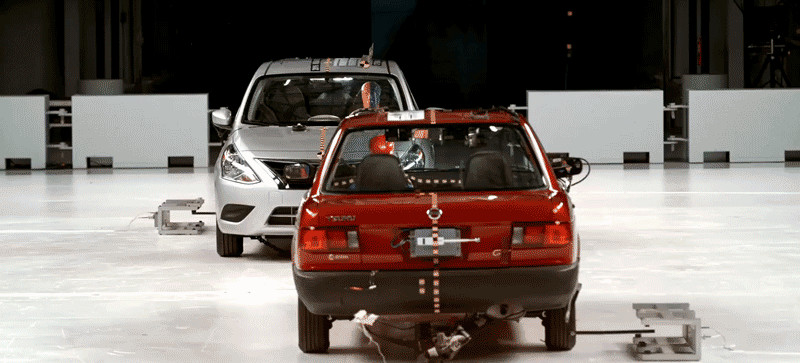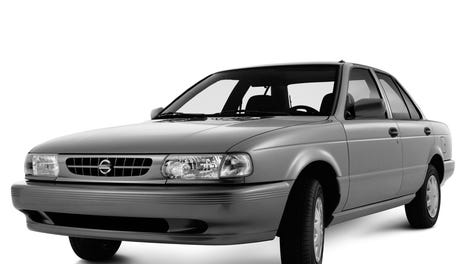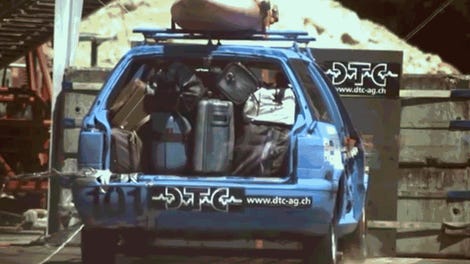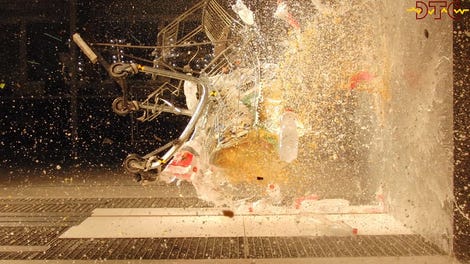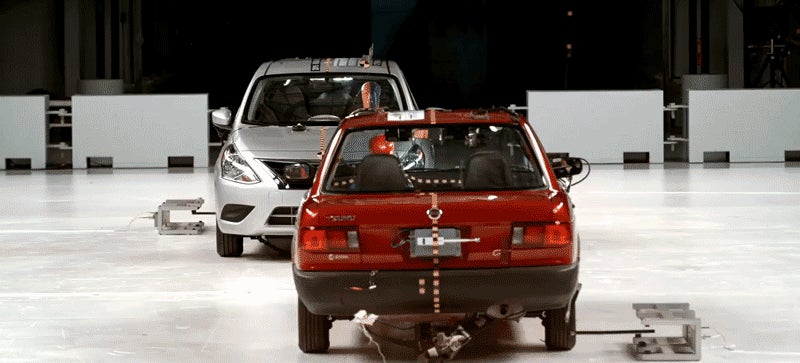
After decades as a mainstay in Mexico’s taxi fleets, Nissan announced the Tsuru—a new 1992 Sentra, basically—will cease production after a dismal zero-star crash test. Just how bad was the Tsuru, especially compared to a modern car? This bad.
In this test, the Insurance Institute For Highway Safety crashed a new U.S.-spec 2016 Nissan Versa into a Mexican-market 2015 Nissan Tsuru.
Advertisement
Advertisement
One car made it out fine, while the other was completely annihilated.
This experiment, put on by IIHS, Latin NCAP and Global NCAP, pitted Nissan’s cheapest modern sedan in the U.S. against the company’s least expensive sedan sold in Mexico. The aim was to highlight the disparity in safety requirements between the two nations. And I think we all get the point now. The test was part of the three groups’ #NoZeroStarCars campaign, whose goal it is to remove zero-star rated cars like the aging Tsuru.
Both the Tsuru and the Versa were driving 40 mph before crashing into each other in what’s called a 50 percent overlap test. The driver of the Versa is cushioned by the front and side airbags, and the overall structure and safety cage holds up very well.
Sponsored
The Tsuru, on the other hand, has no airbag for the driver’s head—not that it would make a difference, since the driver’s noggin slams directly into the heavily-deformed a-pillar, almost certainly a fatal hit.
The NCAP has reported that the Tsuru was involved in more than 4,000 deaths in Mexico between 2007 and 2012. Now you can see why.
Advertisement
Advertisement
h/t: copy_run_start

